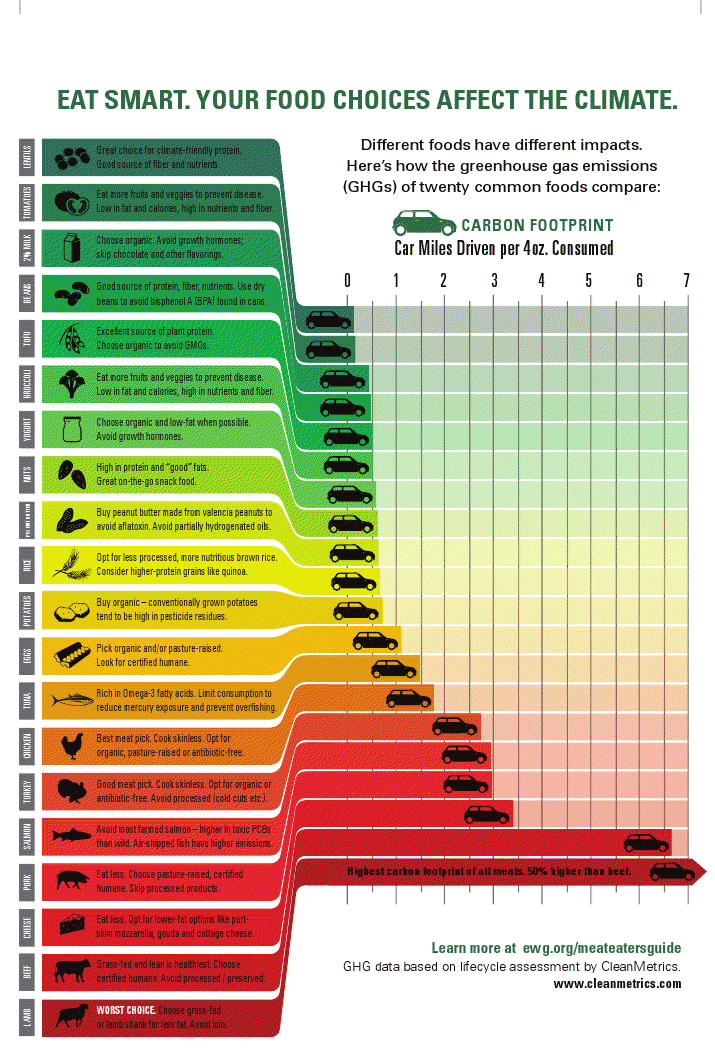I would define an ecotarian as a person who asks questions about the foods they eat with the aim of reducing their footprint on the planet. It's close to being flexitarian, but really with an ecological conscience behind it.
I would say that there are two levels to ecotarism (really, I am making up these terms, I haven't found them anywhere on the Web, it just seems logical to me to call it like that).
ECOTARISM - LEVEL 1
This is the most accessible.
We look at charts (like the ones I mentioned in the last article), and with a bit of research, we realize that there are small actions we can take to change our diet and have a significant impact to help the planet.
Example: Reduce meat consumption, especially beef.
ECOTARISM - LEVEL 2
This one is more intense.
It leads us to reflect on the impact of each food we buy to see which option is more favorable.
Example: Choosing between cow's milk and almond milk. Both takes a lot of water to produce, but is there a better choice between them? Or more challenging choices like choosing (not organic) locally-grown carrots VS organic carrots from another country?
THE PATH OF THE ECOTARIAN
I want to address level 1. The one where we reduce our meat consumption for the sake of the planet (because animal cruelty doesn't hit us hard enough to stop eating it, it seems).
And I want to talk to you about my journey because the ecotarian is always on a journey. I don't think they go from carnivore (meat lover) to vegetarian overnight. They love meat too much.
Several years ago, I was pretty much in the same place as the majority of the population: I ate meat every day. Beef, pork, chicken, fish, seafood. Then, as my ecological awareness grew, I learned more things, and I realized that what I was eating had a significant impact on the environmental crisis we are currently facing!
Two resources convinced me over time to substantially reduce my meat consumption:
This documentary: Cowspiracy ( on Netflix )
And
These kinds of charts:


As a proud ecotarian, I started by cutting beef, thinking it was the first to avoid to make a real difference. According to all the charts, that seems to be the case, so I was quite convinced. Anyway, I was never really a steak enthusiast. In the beginning, I admit, I still bought ground beef from time to time. Then I discovered that ground pork did the same job (and on the charts, pork is better). After that, I stopped buying pork and found other alternatives, like ground turkey (which was even better on the charts), to eventually move more and more towards completely vegetarian alternatives.
In all transparency, I'm not yet 100% vegetarian, but our diet has substantially changed to be much more eco-friendly. Our consumption now is limited to very little chicken/turkey (about once a week) and pork sausages once a month.
MAKE MORE RESPONSIBLE FOOD CHOICES
What's great about being an ecotarian is that it brings ecological awareness to multiple levels.
For example, we buy a whole organic farm-raised chicken instead of buying cheap chicken wings on sale (in my mind, when I buy chicken wings, it's as if I'm killing and wasting lots of chickens just to recover and eat their wings... it's silly because it's really not like that, but it bothers me nonetheless).
Now, when I buy chicken, I take it whole and use even its bones to make chicken broth. The meat serves us for 2-3 different meals, and the broth allows us to make many other recipes (soups, stews, sauces).
So even if you're a big carnivore, it's possible to reduce without becoming a vegetarian overnight.
After that, the journey happens naturally, step by step. Because we open ourselves to learning new recipes, we discover new foods (tofu, TVP (Textured Vegetable Protein), legumes). Sometimes, it's quite simple: we realize that we don't need to put meat in everything (we can make our spaghetti sauce or chili without meat, and it still works).
We also start to explore vegetarian products, and that's really fun. We discover vegetarian brands that aren't so great... and others that surprise us!
I tried about ten brands of vegetarian sausages before finding ones that were really similar to hot dog sausages! Veggie hot dogs can be good. And like my tissues, I wouldn't go back; I've reached the point where using sausages made from animal leftovers kind of grosses me out.
And in the end, we eat one less meat meal a week... two less... three less... up to five-six less per week! And we reduce beef... and we reduce pork... and we are getting closer and closer to being vegetarian; all of this to do our part to reduce intensive farming, which cannot continue like this. All of this to make a real difference in greenhouse gas emissions.
IMPRESSIVE STATISTICS
Besides, I read that if all Americans (300 million people) ate one less meat meal per week, it would have the same effect on greenhouse gases as saving 90 million flights New York – Los Angeles. ( source : “Meat the Truth”, YouTube video )
According to this same source, if all Americans ate 3 fewer meat meals per week, we would save nearly 300 megatons of greenhouse gas emissions. This would have a greater impact on reducing global warming than if all cars in the United States were replaced by Toyota Priuses. Crazy, right?
IN CONCLUSION
All of this to say that if someone ever asks you if you eat meat, you can now tell them that you are an ecotarian; you are in transition and guided by eco-friendly food choices! You don't say no to a meal served with meat (it's already bought, already cooked, already on your plate, so why not!), but you buy less and less of it because, for you, it's an excellent little gesture to make for the planet!













